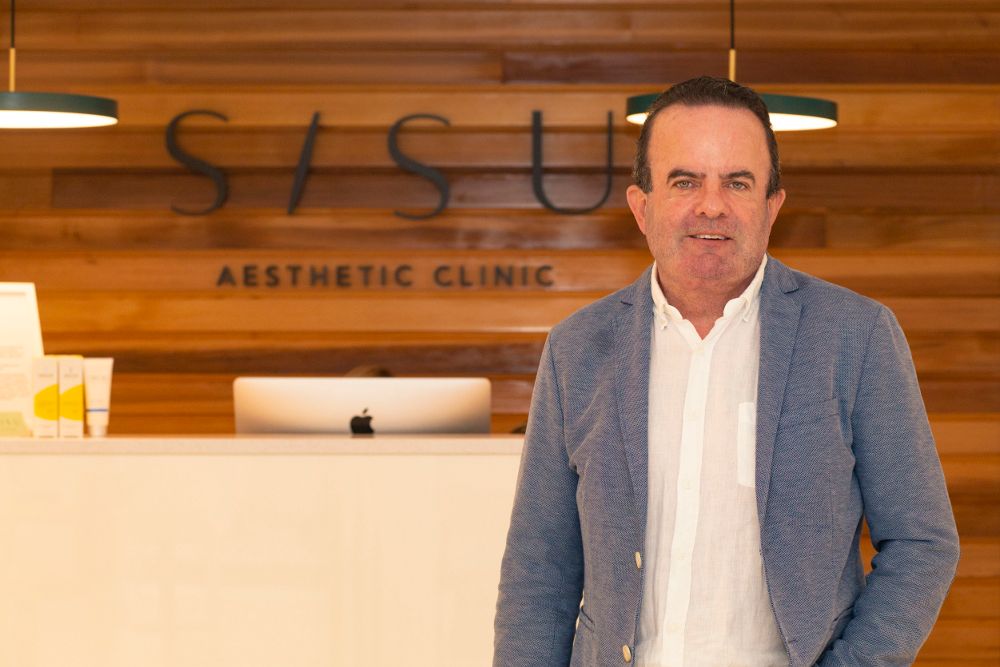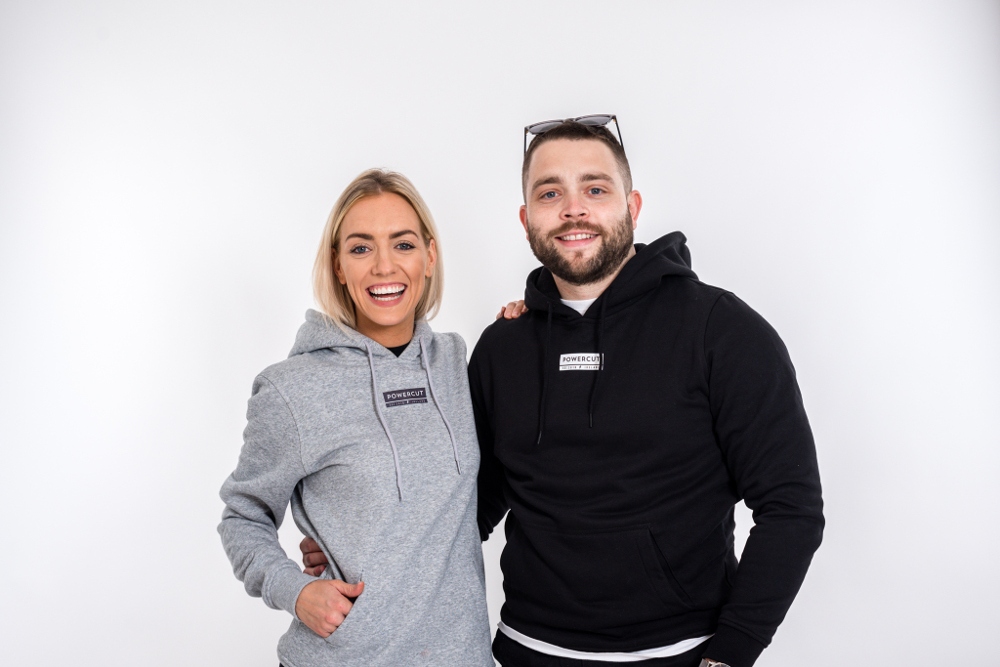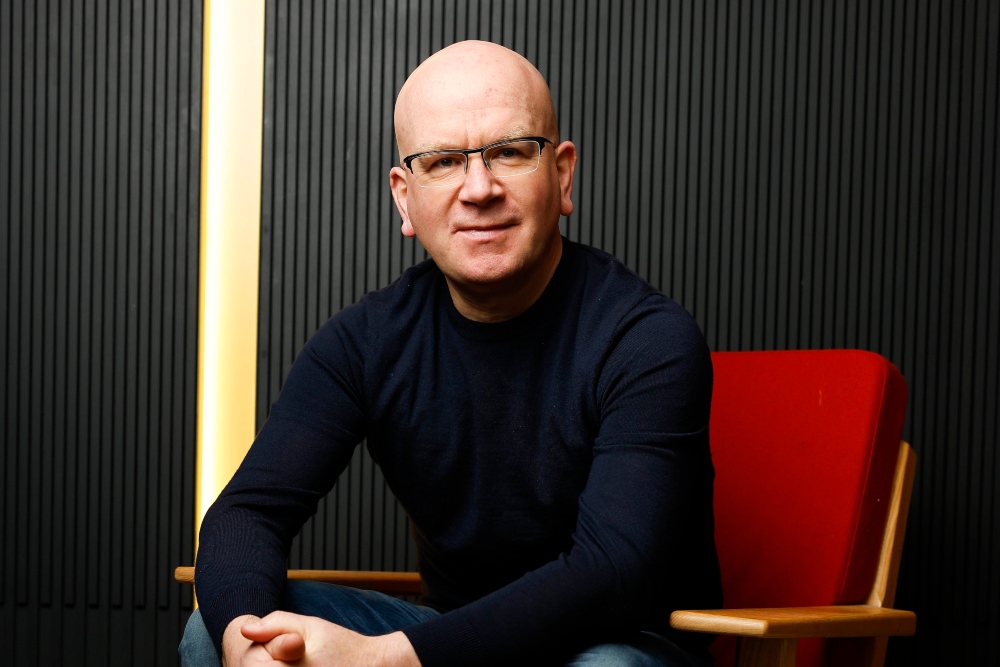Podcast Ep 105: Social media strategist and author Louise McDonnell outlines the steps SMEs need to take to effectively grow sales through social media.
Best-selling Irish social media strategist Louise McDonnell’s recently published ‘2022 Social Media Planner & Guide’, is in high demand for advice and inspiration on how to stay fresh and relevant on social media.
She talks to ThinkBusiness about building a business in the west of Ireland and why so many businesses get it wrong when it comes to social media.
“It was down to my own determination not to have to be forced to live in a different part of the country to work. I developed my own business because I had to”
The online trainer runs the Sell on Social Media Academy for business owners and organisations that want to learn how to use social media more effectively to drive sales or to boost followers.
Her social media planning bible takes the headache out of social media content creation, week in and week out, and suggests extensive resources and social hacks to never run out of engaging gems that will appeal to audiences.
When people buy McDonnell’s planning workbook they can also register for free resources on its creator’s website, including video tutorials and live online masterclasses.
The online training academy and books are popular with SMEs, while larger more established businesses also use Louise McDonnell’s social media agency to outsource social content and ad management.
How to make friends and influence people
After more than a decade working in the emerging internet industry in Dublin, McDonnell moved back to her native Sligo to raise her young family.
Her instinct for supporting SMEs was nurtured during her tenure as CEO of Ballina Chamber of Commerce. “It was a really good move for me and I absolutely loved it. It was a developmental role about promoting the area and helping small businesses. We did a huge amount of lobbying for Government for infrastructural improvements in the areas. It was like running my own business because I had to balance the books and bring in enough money every year and run enough projects to impress members to stay on as members.”
But it was the height of the recession and with a very young family, McDonnell was made redundant. While it was an enormous shock to her at the time, it was also the catalyst that led to her embracing entrepreneurship.
“I was in shock but by the time I got to the bottom of four flights of stairs I said to myself: ‘This is it Louise, this is your opportunity.”
The kernel of the opportunity began when McDonnell as CEO of the Chamber of Commerce had stopped outsourcing SEO and Google Ads projects and took the functions in-house. She realised she had a zest for it and her previous digital marketing experience in Dublin began to come to the fore. “Usually such tasks were left to IT people in a company, but they wouldn’t have the business background. It was 2009 and there weren’t that many people out there with those skills. So I just started my business from there and I started to help people with their digital marketing.”
She landed a contract with Fáilte Ireland to be on one its panels for email marketing and before long a contact in the Local Enterprise Office asked her to put together a course for marketing via Facebook.
These happy coincidences led to McDonnell establishing her brand and creating her Social Media Academy. Training now encompasses all the various social media channels from Twitter, to Facebook, LinkedIn and more recently Instagram and TikTok.
“So how did the Sell on Social Media Academy get established in the west of Ireland? It was down to my own determination not to have to be forced to live in a different part of the country to work. I developed my own business because I had to. Several years ago I realised I could deliver these classes via virtual classrooms. I could record it and make it on-demand and I could work online.”
When the pandemic hit, it was pretty much business as usual for McDonnell. “The Academy has grown phenomenally and we have members in every corner of the world. I love the fact that I can do it here from my little countryside house in the west of Ireland. We also have an agency for those who can afford to outsource their social media. I have two people working for me full-time and they are remote workers.”
An exponent of remote working, McDonnell believes the pandemic was a catalyst for change. By coincidence while training one night in Boyle, Roscommon, she stumbled upon a Grow Remote event and believes remote working is a rising tide that could lift communities across Ireland.
“During my Chamber of Commerce days, it was all about trying to attract industry into an area. But you just need to attract people who are working remotely into an area.”
At the Boyle event it became clear that people could be living and working anywhere in Ireland and yet be paid city salaries. “That’s amazing, you don’t need to be crammed into one little space commuting on trains or whatever. There are a lot of people who just want to live by the sea and go for a surf at lunchtime or in the evening without the commute time, for example. They just want a better quality of life.
“The more people that are able to move back to rural villages and towns, the more sustainable those towns and villages become.”
6 steps for SMEs to succeed on social
When advising businesses on how to succeed at digital marketing through social media, McDonnell has a six-step process that she believes all SMEs should consider:
- “The first step is to outline your goals. Because the goals will dictate the content you will produce. They will dictate your ad campaigns and where and when you’ll run them. Profiling customers helps you to figure out what kind of content you should create. And it helps you with your copy for your ads. And then understanding how you’re unique and different is, is really important. If your content is too generic, your ads will be too generic too. So that’s step one.
- “Step two is all about social media optimisation. And this is about optimising your website and your social media channels. So that when somebody when you do get somebody’s attention that they do understand how you’re different, how unique and how and why they should do business with you. And that’s so important, because time and time again, you will find that people will run ads, and the ads can be really effective, but they drive people to a website which is really ineffective. So that’s what step two is all about. It’s about making sure that when you do get somebody’s attention that you usually have the maximum opportunity of converting them into a paying customer.
- “Step three is about social media content. Most people just want to skip to step three. And they just create content without having done either planning or profiling or optimising. So, step three is about creating content. I do a huge amount of work around helping people to create different types of content like brand awareness content, or consideration or educational type content, of course, sales content as well. So, understanding the different types of content, understanding about the customer journey, and what types of content you need to push out at different times throughout your campaigns.
- “Step four is about targeting. It’s about understanding how to reach different audiences at the right time with the right messages.
- “Step five is understanding how to navigate paid advertising. At the moment, we have the main platforms we would push. There would be Facebook and Instagram, because that’s where the sales are generally delivered. And although Instagram is really becoming popular, Facebook still delivers more sales for all my clients across all of the different industry sectors, so don’t ignore Facebook would be a strong message from today. So, step five is all about understanding what type of ads to run. Understanding how to use the Ad Manager because it has so many sophisticated ad targeting and ad creation capabilities.
- “Step six is about reviewing performance and tweaking campaigns. Sometimes you would not let a campaign run too long if you knew there was an issue with the click-through rate or an issue with a website, you fix those as you’re going along, and you’re continually working on it, to get the best results. Businesses that follow these steps get results that allow them to quantify their spend versus their return on investment. And then you’re also taking into consideration things like what’s the lifetime value of the customer. The most expensive time for acquiring a customer is the first time and after that you build a relationship through email. With social media you don’t own your followers, but with your own email list you can build a relationship with people, nurture then and you will generally generate more money from that list.”
McDonnell said that this formulaic approach has served her and her clients well over the years. “I’ve helped thousands of businesses through the years. The advice might not be too different between one business and another, the difference is when people hear what you are saying and then implement it and others won’t.”
Crucially it boils down to businesses actualising whey they are unique, identifying their core message and then communicating that message effectively using the firepower available to them.
“What is it about your product or service that is truly unique and if someone wants to buy that product or service, how should they engage with you. Then it’s about showing up week in and week out to build that relationship with people.”
-
Bank of Ireland is welcoming new customers every day – funding investments, working capital and expansions across multiple sectors. To learn more, click here
-
Listen to the ThinkBusiness Podcast for business insights and inspiration. All episodes are here. You can also listen to the Podcast on:
-
Spotify
-
SoundCloud
-
Apple





